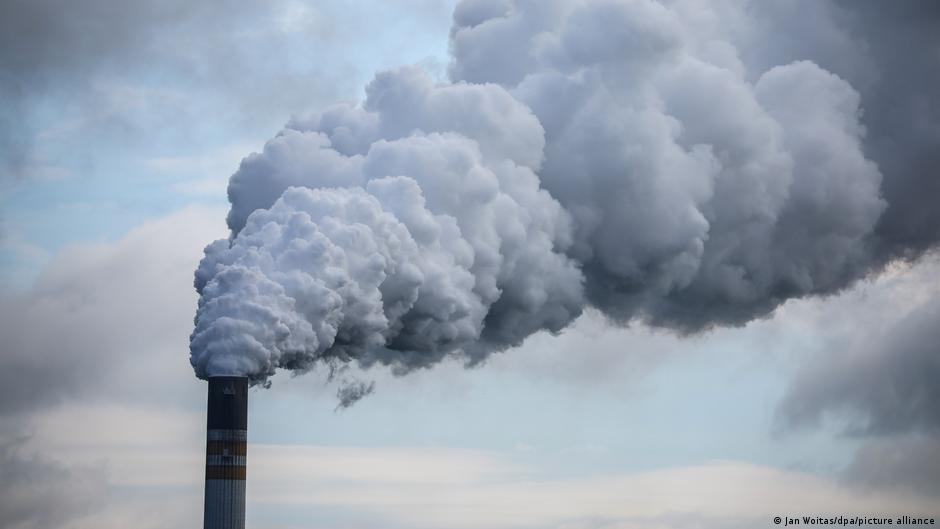Members of the European Parliament on Thursday approved a plan to slightly lower the bloc’s 2040 greenhouse gas emissions target and make changes to rules aimed at forcing big companies to address the human rights and environmental impacts of their supply chains.
While the vote passed with a comfortable majority, one was controversial because it involved the center-right EPP bloc in parliament forming a coalition with populist right-wing factions to push through the changes.
What has changed in the bloc’s emissions targets?
The plan to reduce net greenhouse gas emissions by 90% compared to 1990 levels by 2040 now allows EU member states to outsource 5% of that target to countries outside the bloc through so-called carbon credits. These include paying third parties to reduce harmful emissions rather than reducing them domestically.
EU scientific advisers had said a 90% reduction without offsets was necessary to limit global warming to 1.5 degrees Celsius compared to nominal pre-industrial levels, a non-binding global target announced in the 2015 Paris Agreement that various reports now warn will soon be exceeded.
The hard-fought agreement is still more ambitious than the stated goals of other major economic powers such as China or the US.
The adjusted target passed with a majority of 379 in favour, 248 against and 10 abstentions. Lawmakers also rejected a proposal by the far-right group Patriots for Europe, which had called for the goal to be scrapped altogether.
Parliament supported delaying by one year the inclusion of fuels such as natural gas and petroleum in the EU’s trading system until 2028, in an effort to limit the rise in heating and fuel prices.
Environment ministers from 27 member states had endorsed the changed targets just last week, preventing them from leaving the global COP30 climate summit currently taking place in Brazil empty-handed.
What has changed in corporate sustainability plans for big business?
Thursday’s more controversial vote was on softening provisions on EU environmental and human rights rules for big business.
Known as the Corporate Sustainability Due Diligence Directive (CSDDD), and considered unprecedented when it was first agreed, it calls on large companies to address the “adverse human rights and environmental impacts” of their supply chains around the world.
Perhaps the biggest change was on the eligibility criteria. Companies subject to the directive will now be required to have at least 5,000 employees instead of 1,000 and an annual turnover of at least €1.5 billion (about $1.7 billion).
The proposal also calls for scrapping harmonized European penalties for violators, instead referring to national legislation.
CSDD changes need far-right support
The CSDD changes passed with a comfortable majority, 382 in favor and 248 against, but, controversially, they required the support of the right-wing populist bloc known as Patriots for Europe (PfE).
This then led to a standoff in parliament between more centrist and centre-right groups, who wanted to weaken the plans to help European industry amid pressure from US sanctions and other factors, and more centre-left and environmentalist groups who wanted to keep the plans as they were.
René Repassi, a German MEP from the centre-left Socialists and Democrats (S&D) bloc, accused the centre-right European People’s Party, the largest bloc in parliament, of “scuttling any compromise”.
“Conservatives move forward with red pens — dismantling the firewall and reconciling with marginalized anti-democratic forces to reassert their self-created majority,” Repsi said after the vote.
EPP lawmaker Jörgen Warborn, who sponsored the amendments, said the changes would bring greater “predictability” and boost competitiveness for companies, “keeping Europe’s green transition on track.”
Meanwhile, Europe’s patriots celebrated their rare participation in proposed legislation that actually cleared the European Parliament.
“A huge victory for workers, farmers and industry,” the group wrote online. “Today, Patriots for Europe broke the old coalition deadlock and opened the way to replace the Green Deal with a competition-driven agenda. We proved that another majority – And another policy for Europe – It is possible. “This is just the beginning.”
Thursday’s changes still represent tougher standards than those advocated by many major players. German Chancellor Friedrich Merz and French President Emmanuel Macron have both floated the idea of scrapping the plans altogether. European gas importers like the US and Qatar had warned that the law could threaten future energy imports.
Edited by Shawn Sinico






Leave a Reply